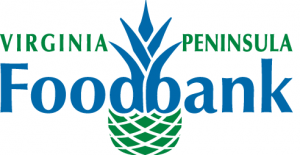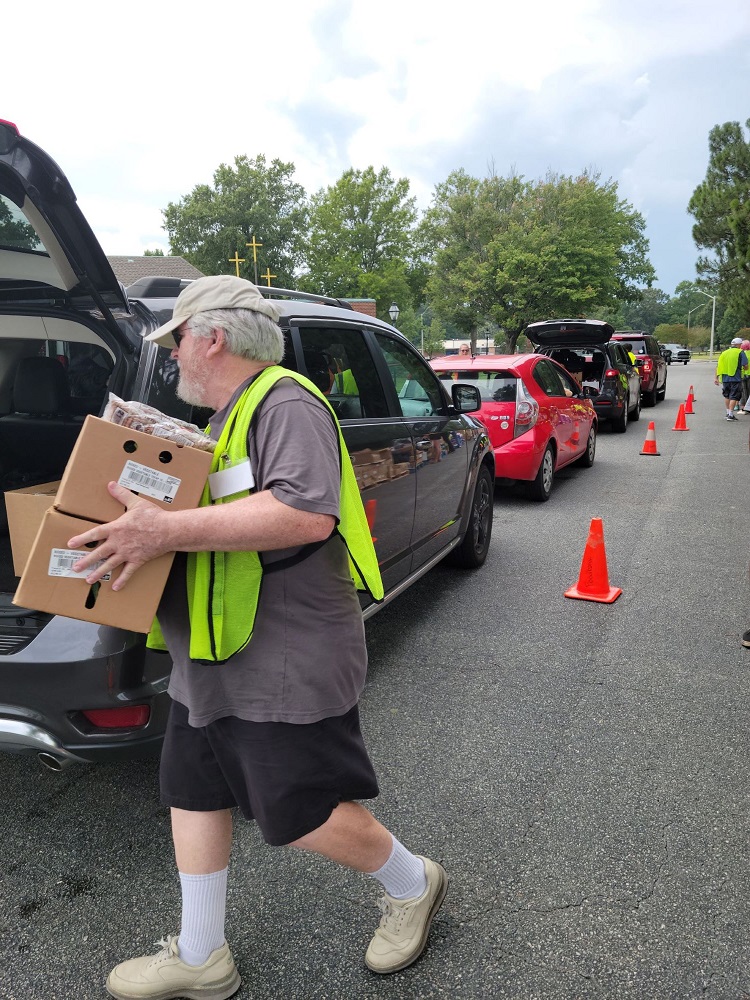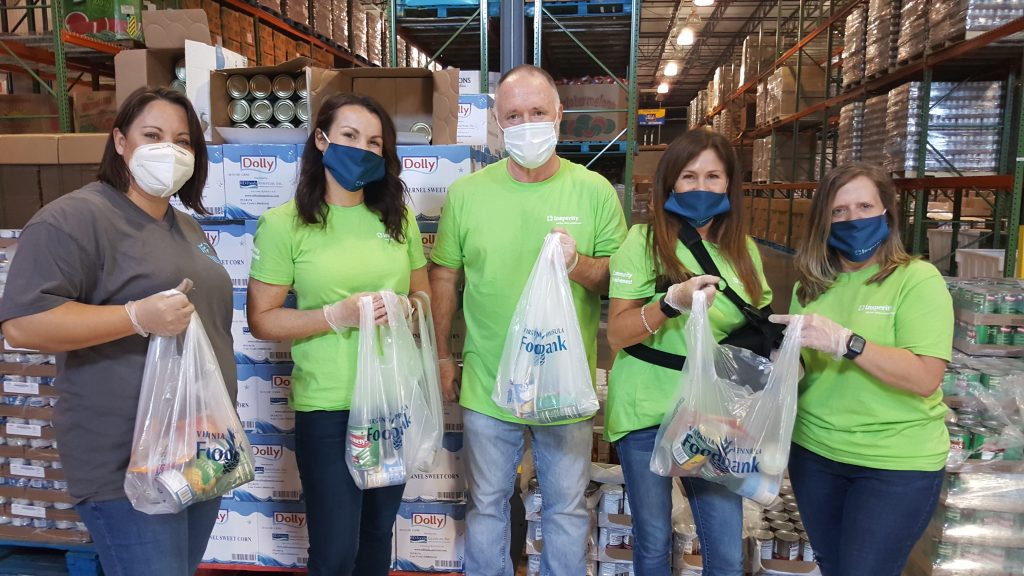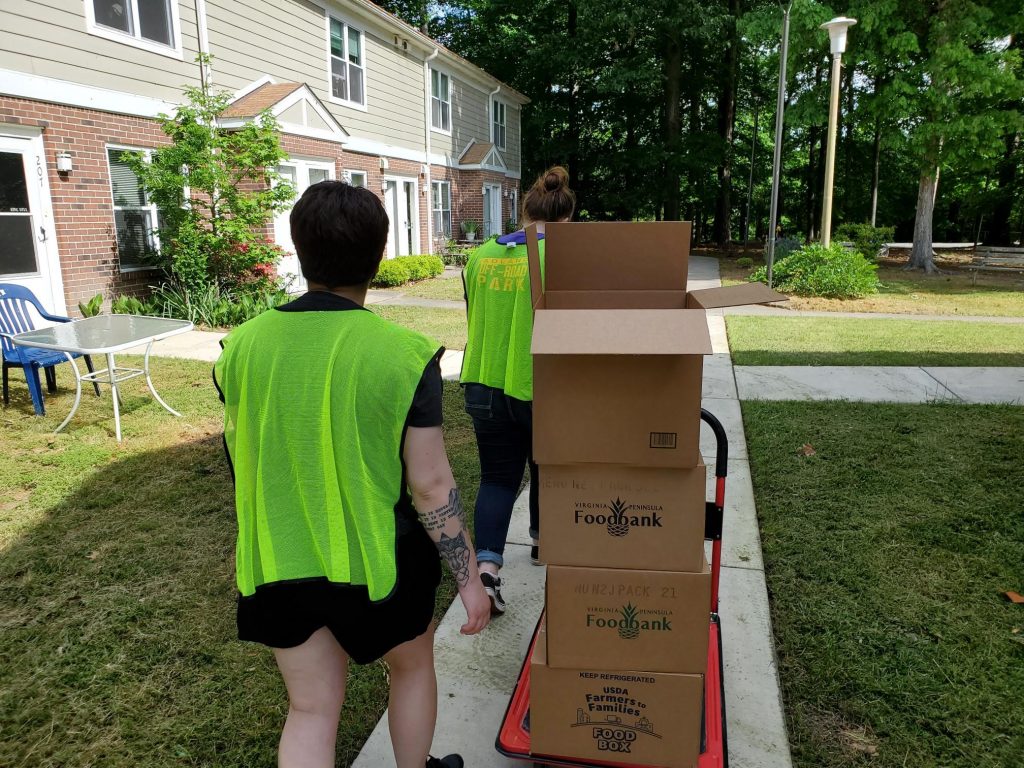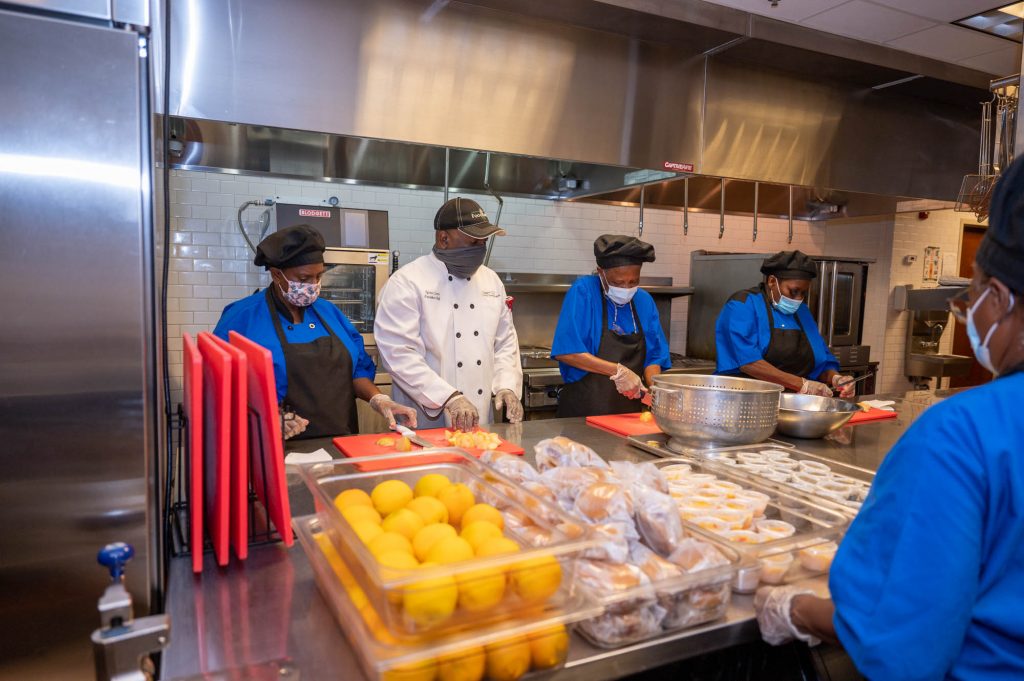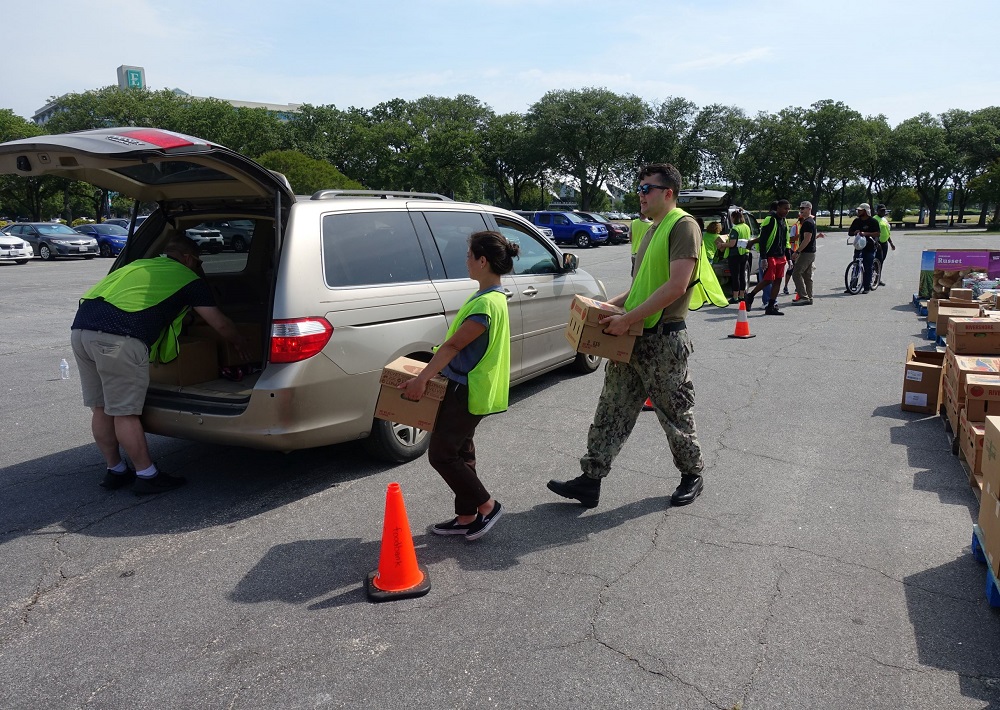Virginia Peninsula Foodbank
Since 1986, Virginia Peninsula Foodbank has become the Peninsula’s #1 safety net for food insecure residents across the greater Peninsula, providing both nourishment and hope to those who face the challenges of hunger. Our mission is to distribute food effectively through collaborative efforts that minimize hunger, promote nutrition, and encourage self-reliance through education. Our service area includes the cities of Hampton, Newport News, Poquoson, and Williamsburg, and the counties of Gloucester, James City, Mathews, Surry, and York. The Foodbank has distributed over 236 million pounds of food or almost 106.6 million meals since fiscal year ending June 2022. The Foodbank acquires nutrient-rich food through donations, purchasing, and government programs, and works tirelessly to maximize efficiency in delivery and to minimize waste. The Foodbank also plays an essential role in the community’s emergency response following a weather disaster, economic downturn, or the recent COVID-19 health pandemic.
To accomplish our mission of distributing food effectively, the Virginia Peninsula Foodbank employs a variety of programs to target and fulfill the needs of Peninsula residents who are hungry and in need of nourishment. Our largest program is our Food Distribution Program, and we collaborate with over 150 partner agencies including shelters, churches, food pantries, and other community nonprofit organizations to take the food we bring into our warehouse and ensure that it makes it onto the tables of Peninsula families. Our partner agencies are an invaluable resource as they allow us to expand our reach beyond what we could accomplish with only our fleet of trucks and staff alone.
Our childhood nutrition programs help nourish growing minds. The Food for Kids BackPack Program targets food insecure children at local Title I elementary schools by providing them with backpacks filled with nutritious, child-friendly, easy-to-prepare meals and snacks over the weekends and during extended school holidays when other resources are not available. Volunteers assemble the backpacks at our facility, and they are transported to local schools where children can take them home safely and discreetly. Currently, we serve 1,650 children weekly at 37 sites. Studies have shown that children who are well nourished perform better academically and socially and experience successful physical and mental growth. The Kids Cafe and Summer Food Service Programs also aim to meet the needs of hungry children by delivering hot meals and healthy snacks daily during the school year and summer to afterschool programs, churches, and community centers. For many of these children, this food serves as their only evening meal. The monthly School Produce Markets at local elementary schools provide fresh fruits and vegetables that promote good nutrition and healthy eating. The Foodbank also operates a 12-week Culinary Training Program for low-income adults who are seeking a positive change in their lives. The program teaches them culinary skills such as food preparation, proper food handling and safety, and kitchen management, but it also offers them employable life skills such as leadership, time management, and financial planning. The goal of the Culinary Training Program is to empower these adults to be self-reliant, while offering them skills they can use to build a successful career. Also, of note, it is the students in the Culinary Training Program who prepare the meals distributed at our Kids Cafe and Summer Food Service Program sites.
The Foodbank also hosts food distribution events at 21 sites monthly across the Peninsula as part of its Mobile Pantry Program. These events occur at places such as schools, community centers, and low-income senior living apartments. At mobile pantries, food insecure Peninsula residents can come and obtain TEFAP/USDA commodities, fresh produce, and shelf-stable goods to take home with them. Senior citizens, families, and military veterans all benefit from these events. Finally, our Emergency Food Assistance Program, Neighbor to Neighbor Program, and Bulk Day Program round out our offerings as avenues we can use to supply food to those who experience hunger across the greater Peninsula. Together, with the help of our partner agencies, we can make a tangible and significant impact in our community.
There is no greater or more basic need than having enough food to live a normal, healthy lifestyle. Sadly, this is a need that many on the Peninsula have trouble meeting. According to a Map the Meal Gap Survey conducted by Feeding America and released earlier this year almost 55,000 Peninsula residents are classified as food insecure. This means that they do not have the ability to acquire enough food to properly feed themselves and their families. More than 20,000 are children. Families are having to make difficult and impossible choices between food and other crucial needs, such as electricity, childcare or medicine. A great need requires a strong response, and Virginia Peninsula Foodbank strives to provide hunger relief to these individuals and families through a variety of programs and services that distribute food efficiently and effectively to these populations who need it most. While we are fully aware of the meaningful impact we can make, we cannot do it without strong partnerships, food and fund donations, volunteer energy, and community grants. Every program we provide requires funding to execute and maintain. Hunger relief is truly a collaborative effort.
There is no typical face of hunger in our community, and our variety of programs provide comfort and hope to those in need. While we certainly assist people who are caught in a cycle of poverty and experience chronic food insecurity, we also support our neighbors who confront short-term challenges (job loss, medical emergency, accident) and provide them with food until they can regain stability. Hunger does not discriminate, and neither do we. We serve all who need our help.
For more information on how you can join us in our journey to end hunger, please visit hrfoodbank.org.

